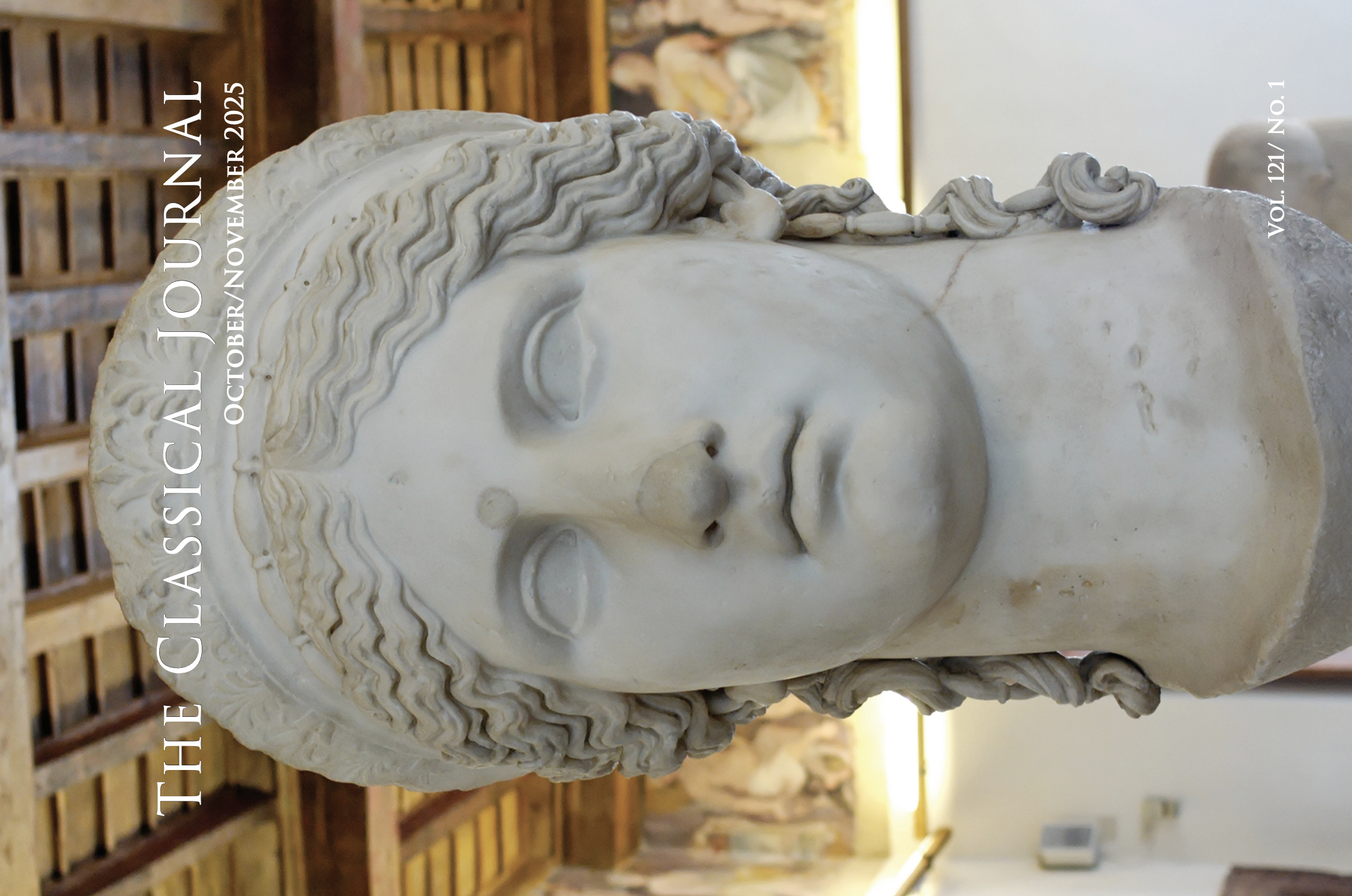The following articles are contained in CJ
112.4
Abstracts of Articles
NARRATIVE DESIRE AND THE LIMITS OF LAMENT IN HOMER
This article demonstrates how a particular type of narrative formula in Homer—the pivotal counterfactual—creates in contexts of lamentation a suggestive correspondence between the desire to mourn and the desire to hear (and relate) more narrative. The various other structural functions of such formulae are best understood in relation to this more fundamental effect. Pivotal counterfactuals that express a longing for extended mourning occur in thematically parallel locations in the Iliad and Odyssey, and significantly enhance the power of subsequent formal lamentations while reinforcing the narrative teleology of both poems.
ALEXANDER-IMITATORS IN THE AGE OF TRAJAN: PLUTARCH’S DEMETRIUS AND PYRRHUS
Interest in Alexander the Great witnessed a revival among Greek intellectuals at the beginning of the 2nd century AD , coinciding with the reign of the Alexander inspired emperor Trajan. This paper argues that Plutarch’s Demetrius and Pyrrhus participate in this contemporary discourse by exploring the phenomenon of Alexander imitation directly. Plutarch portrays these Hellenistic kings as men whose perceived similarities to Alexander failed, for various reasons, to bring them lasting success. These Lives call into question which of Alexander’s traits a ruler should imitate and suggest that an association with Alexander can do as much harm as good to a ruler’s reputation.
ROMA(NA) MATRONA
In the Bellum Civile, Lucan in part draws his three major characters by illustrating their relationships with women. Cato and Pompey appear with their Roman wives, where Caesar appears only in an illicit relationship with the foreign Cleopatra and while rejecting the apparition of Roma at the Rubicon. This article will demonstrate that Caesar’s repudiation of Roma is emblematic of his rejection of Rome, Roman womanhood, and Romanness, in contrast to Cato and Pompey, whose devotion to their wives echoes their devotion to the doomed res publica. The poet develops this scheme by identifying Roma and the republic with the virtuous Roman matron.
OFF THE BEATEN PATH: GENERIC CONFLICT AND NARRATIVE DELAY IN PUNICA 14
In Punica 14, Silius Italicus uses several digressions to associate Sicily with poetic traditions that were felt by the Romans to espouse a decidedly non- or anti-martial epic agenda (Alexandrian, Callimachean, neoteric). These digressions interrupt, delay and push back against the book’s martial epic content, its narrative about Marcellus’ invasion of the island. A conflict of genres or literary modes thus ensues in which epic’s struggle to assert its hegemony over unepic literary traditions mirrors Rome’s struggle to conquer Sicily. Through this conflict Silius explores the consequences of imperialism for Rome’s Hellenistic heritage, including the influence of the Alexandrian poetic tradition on Roman epic.


